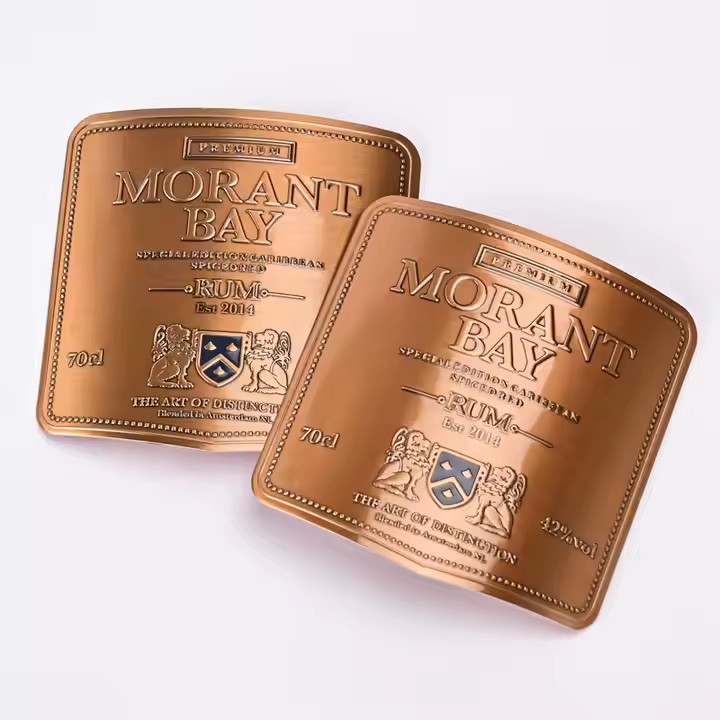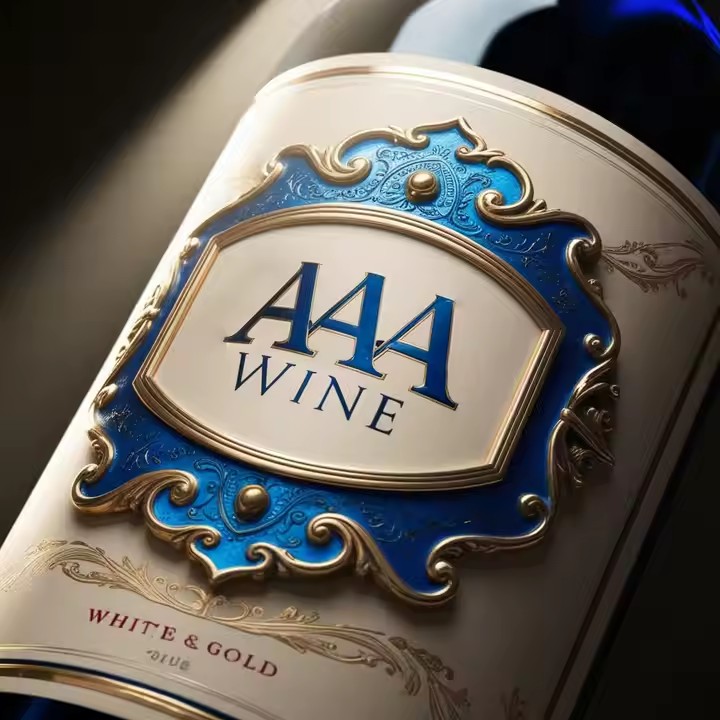How Long Do Metal Name Plates Last? Key Factors That Affect Durability

Why Choose Metal Name Plates as the Preferred Industrial Labeling Solution?
09/10/2025
How to Design a Metal Name Plate That Combines Function and Aesthetics
23/10/2025How Long Do Metal Name Plates Last? Key Factors That Affect Durability
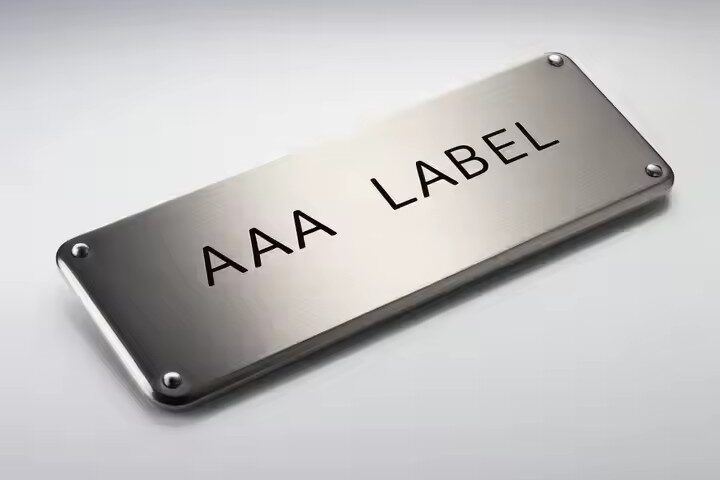
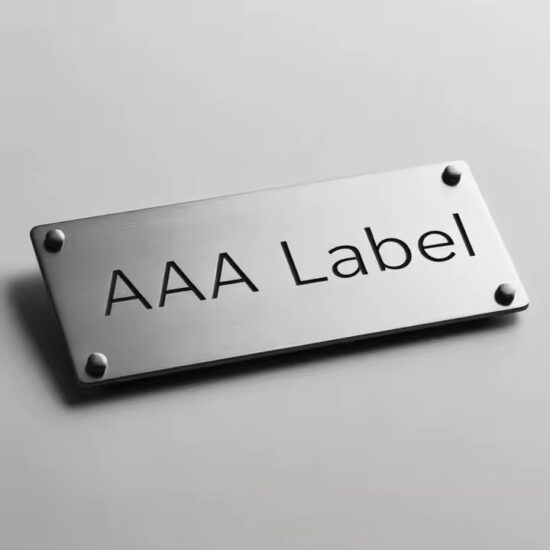
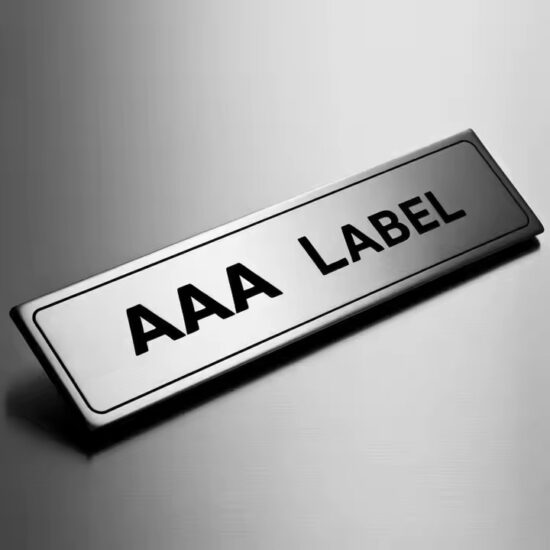
How Long Do Metal Name Plates Last? Key Factors That Affect Durability
Metal name plates are essential in industrial and commercial environments for identification, safety labeling, compliance, and branding. One of their biggest advantages over plastic or paper alternatives is durability—but how long do they actually last?
This article explores the typical lifespan of metal name plates and the key factors that affect how well they perform over time.
🔧 Average Lifespan of Metal Name Plates
Under normal industrial conditions, metal name plates can last 10 to 20 years or more, depending on the following:
-
Material used
-
Exposure to harsh conditions
-
Type of marking or printing
-
Installation method and maintenance
In many cases, a well-designed metal name plate will outlast the equipment it’s mounted on.
🔍 Key Factors That Affect Durability
1. Material Type
Different metals offer varying levels of resistance:
-
Stainless Steel – Extremely corrosion-resistant, ideal for harsh environments; can last 20+ years
-
Anodized Aluminum – Lightweight, corrosion-resistant, fade-resistant; often lasts 10–15 years outdoors
-
Brass/Copper – Good durability with decorative appeal; best for indoor or protected environments
-
Zinc Alloy – Used more for decorative or short-term labeling; lifespan may vary
➡️ Tip: Match the material to your product’s working conditions for optimal performance.
2. Environmental Conditions
The harsher the environment, the faster the material may degrade if not properly treated:
| Condition | Impact on Durability |
|---|---|
| UV Exposure | Can cause fading or surface wear |
| Humidity/Water | May lead to corrosion if untreated |
| Chemicals & Solvents | Can damage surface coating or markings |
| Temperature Extremes | May cause warping or adhesive failure |
| Abrasion & Impact | Can scratch or deform surfaces |
💡 Solution: Use treated or coated metals (e.g., anodized aluminum, passivated stainless steel) for environments with extreme exposure.
3. Marking Technique
The method used to display information on the name plate also determines how long it will remain legible:
| Technique | Durability Level | Notes |
|---|---|---|
| Laser Engraving | Very High | Permanent, fade-proof, scratch-resistant |
| Chemical Etching | High | Can be color-filled for contrast |
| Embossing | Very High | No ink—3D surface resists wear |
| Screen Printing | Moderate | Requires protective coating outdoors |
| UV Digital Printing | Moderate to High | Good indoors; may need clear coating |
4. Surface Finish and Coating
Applying the right finish protects the plate and extends its lifespan:
-
Anodizing (for aluminum) – Adds hardness and color stability
-
Clear Lacquer or Epoxy – Shields printed text from wear
-
Brushed or Matte Finishes – Resist fingerprints and surface scratches
-
Passivation (for stainless steel) – Increases corrosion resistance
➡️ Consider environmental sealing or protective layering for extreme exposure conditions.
5. Mounting Method
Improper installation can shorten a name plate’s life. Common methods include:
-
Screws or Rivets – Most secure for heavy-duty or outdoor use
-
Industrial Adhesives – Strong and invisible, but affected by heat/moisture
-
Magnetic Backing – Best for temporary or replaceable labels
Correct mounting ensures the plate stays in place and protected.
🧯 Bonus: Maintenance Matters
Even the most durable name plate can degrade without occasional maintenance. Regular cleaning with non-abrasive materials and avoiding exposure to harsh solvents can help extend life expectancy.
🏁 Conclusion
A high-quality metal name plate can easily last a decade or more, especially when matched correctly to its environment and application. By choosing the right material, marking method, and protective finish, you ensure that critical product or safety information stays intact, legible, and professional-looking for the long term.
💡 Pro Tip: Work with experienced manufacturers who understand how to engineer metal name plates for specific industries like aerospace, oil & gas, manufacturing, or marine environments.

